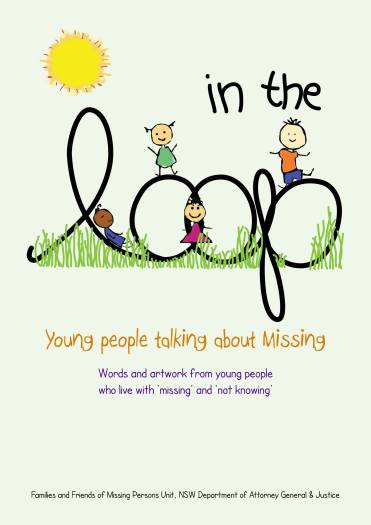Missing people: A guide for family members and service providers has been developed by the Families and Friends of Missing Persons Unit, Victims Services, NSW Department of Justice. The Families and Friends of Missing Persons Unit (FFMPU) was established in 2000 and is the only service in Australia specifically set up to provide counselling, support and practical assistance to those affected by the loss of a missing person. FFMPU is committed to improving the knowledge and understanding of issues related to missing people, and increasing awareness of the experience and impact on those left behind when a loved one is missing.
In the community, the subject of missing people and the impact on those left behind is little understood and rarely talked about. The initial search is often the part of the experience that is most reported. There is sometimes limited understanding about missing persons’ issues and the experience of the families left behind.
There can be misconceptions about who goes missing and why they’re missing. Families report feeling misunderstood by the community and service providers. They experience a loss that is traumatic and sometimes unresolved. Families often speak of the challenge of living with ‘not knowing’ what has happened, what the future holds or where to turn for help. In this book, we address the issues that may arise for those who are left behind when a loved one is missing.
The information provided in this book is based on the knowledge of the team at FFMPU, information gained from other organisations and research findings, into the emotional and psychosocial impact of missing. It was written by the counsellors at FFMPU in consultation with family members who have someone missing in their lives, and draws on their lived experience. Their comments are incorporated throughout the book and provide insights into the different aspects of missing. These families generously and willingly shared their experiences, reflections, and time to make the book possible. We thank them for their generosity, patience and ongoing support.
This book assists service providers who come into contact with families of missing people to better understand the difficulties they face, through the insights the families have provided. We hope too that the book raises awareness and increases understanding of missing persons’ issues across the community.


